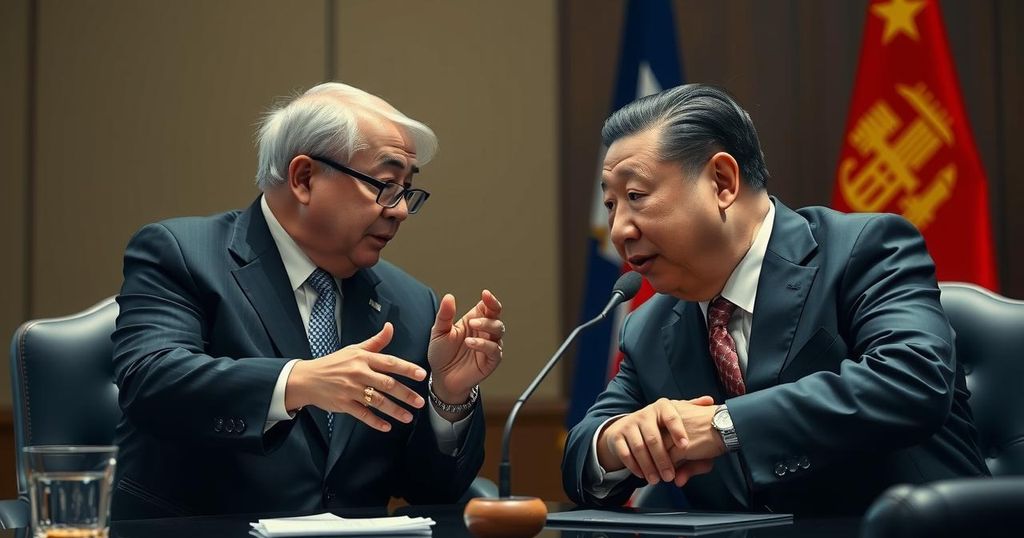President Biden is set to have his last meeting with Chinese President Xi Jinping, emphasizing the need to dissuade North Korea from strengthening its military support for Russia during its Ukraine conflict. Concerns over North Korea’s missile tests and Beijing’s economic ties with Pyongyang will be central. The meeting highlights broader U.S.-China tensions involving trade, technology, and Taiwan ahead of Biden’s impending departure from office.
President Joe Biden is poised to leverage his concluding encounter with China’s President Xi Jinping to advocate for reducing North Korea’s support for Russia amid its ongoing conflict in Ukraine. This pivotal discussion, taking place at the Asia-Pacific Economic Cooperation summit in Peru, is critical as Biden approaches the end of his administration. He views Xi as an essential counterpart in navigating global issues, particularly regarding North Korea, which has been increasing its military alliance with Russia. During a recent dialogue, Biden, alongside leaders from South Korea and Japan, denounced North Korea’s military contributions to Russia, labeling such cooperation as “dangerous and destabilizing”. There is growing concern among U.S. officials regarding China’s significant role in North Korea’s economy and the perceived lack of action from Beijing to temper Pyongyang’s aggressive behavior, especially as North Korea escalates its ballistic missile tests. In addition to discussing North Korea’s troubling alliance with Russia, Biden and Xi are expected to address various critical issues, including human rights concerns in China, the technological rivalry, and the sensitive situation with Taiwan, which remains a flashpoint in U.S.-China relations. With uncertainties looming over future U.S.-China dynamics under an incoming Trump administration, there are apprehensions that trade tensions could escalate further, impacting American businesses and investment in China. Analysts emphasize that Xi’s engagement with Biden is not merely a diplomatic exchange but also a signal to American corporate leaders regarding the business climate in China. As the Biden administration prepares to provide guidance to the Trump transition team, concerns linger over the potential for conflict, particularly in the Pacific region, where territorial disputes are increasingly volatile. The urgency of this meeting underscores Biden’s commitment to address these multifaceted global challenges before leaving office, reflecting over five decades of political involvement, particularly in fostering Sino-American relations.
The meeting between President Biden and President Xi is significant as it occurs shortly before Biden concludes his presidency. North Korea’s military cooperation with Russia poses serious regional threats, thereby necessitating diplomatic intervention. The U.S. has heightened scrutiny on China regarding its economic influence over North Korea and its indirect support for Russia amidst the conflict in Ukraine. Biden’s previous collaboration with Xi as vice presidents laid the groundwork for their current relationship, which has faced numerous challenges over recent years, including cyber espionage and rising military tensions in the Pacific.
In summary, President Biden’s final discussions with President Xi aim to address the increasingly dangerous ties between North Korea and Russia. The dialogue will encompass broader issues that impact U.S.-China relations and global stability. With rising tensions in various geopolitical arenas, the outcome of this pivotal meeting could set the tone for future interactions between the world’s leading powers, underscoring the importance of collaboration in avoiding escalation into conflict.
Original Source: www.usnews.com






